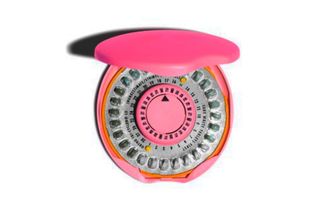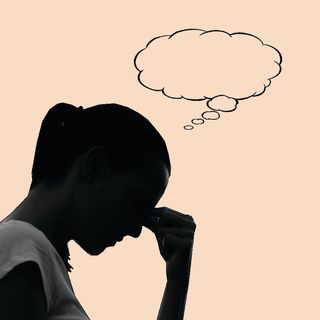
Study Links Teen Birth Control Pill Use to Higher Risk of Adult Depression
The finding shouldn’t discourage doctors from making contraceptive pills available to teens, researchers say.

Adolescent girls who use hormonal birth control pills may be more prone to depression as adults compared to women who started using birth control pills in adulthood and women who had never used contraceptive pills, according to a new study by researchers from the University of British Columbia. It’s the latest study in a divisive debate over the mental and emotional side effects of birth control pills, characterized by many, many anecdotes on the side of users, and inconsistent and broad findings on the side of science.
In the new study, published in the Journal of Child Psychology and Psychiatry, researchers found American teens who used birth control pills were 1.7 to 3 times more likely to become clinically depressed as adults, compared to the other cohorts.
The finding echoes the conclusions of a 2016 large-scale Danish study exploring the link between hormonal birth control use and depression, considered one of the most rigorous and reliable analyses to date. The 2016 study compared the use of hormonal birth control of any type — including the pill, hormonal IUDs, patches, rings and injections — by girls and women, between the ages of 15 to 34, to diagnoses of depression and/or prescriptions for antidepressants. It concluded the risk of depression was slightly elevated for anyone, of any age, who used any kind of hormonal contraceptive at any time — but risk was higher among teen users aged 15 to 19; of this group, teen users of non-oral hormonal contraceptives had the highest risk.
However, the new study, which also tracked participants’ current use of contraceptive pills, is the first to suggest that teenage use of contraceptive pills may affect women’s vulnerability to depression even after they stop using the pills.
“Adolescence is an important period for brain development,” Christine Anderl, the study’s first author and a psychology postdoctoral fellow at the university, said in a statement. “Our findings suggest that the use of oral contraceptives during adolescence may have an enduring effect on a woman’s risk for depression — even years after she stops using them.”
This finding feels especially pertinent in a country where, per estimates by the Department of Endocrinology and Metabolism, AIIMS, one in every four to five Indian women of childbearing age have polycystic ovary syndrome (PCOS) — a poorly understood hormonal condition typically treated with birth control. The broad definition of the condition has been under fire recently for contributing to overdiagnosis and unnecessary treatment (with birth control pills) — especially among adolescents.
Related on The Swaddle:
A PCOS Researcher Discusses Her Latest Findings
“Many symptoms of PCOS, such as acne and oligomenorrhea, overlap with features common to pubertal development, but diagnostic criteria for PCOS don’t take adolescence into account,” Tessa Copp, PhD, said in 2017, after co-authoring a call, published in the British Medical Journal, to reconsider diagnostic criteria for PCOS and invest more in research.
Does this mean doctors should stop prescribing birth control pills to adults and teens? No, according to Dr. Monique Tello, MPH, writing for Harvard Health Publishing in response to the 2016 Danish study. Tello points to the small number of people affected — 2.2 in 100 users, according to the earlier study, compared to 1.7 in 100 of non-users; the new study suggests a slightly higher, but similarly small number. “This indicates that only some people will be susceptible to this side effect. Which ones, we don’t know,” Dr. Tello writes. “But I plan to discuss this possibility with every patient when I’m counseling them about birth control, just as I would counsel about an increased risk of blood clots and, for certain women, breast cancer.”
Even the authors of the latest study say their findings should not discourage doctors from making contraceptive pills available to teens. Like Tello, they stress the importance of doctor-patient communication and call for more research to clarify the link further.
“While we strongly believe that providing women of all ages with access to effective methods of birth control is and should continue to be a major global health priority, we hope that our findings will promote more research on this topic, as well as more informed dialogue and decision-making about the prescription of hormonal birth control to adolescents,” Frances Chen, PhD, the study’s senior author and an associate professor of psychology at the university, said in the statement.
Liesl Goecker is The Swaddle's managing editor.
Related


High Consumption of Soft Drinks Linked to Increased Risk of Death
